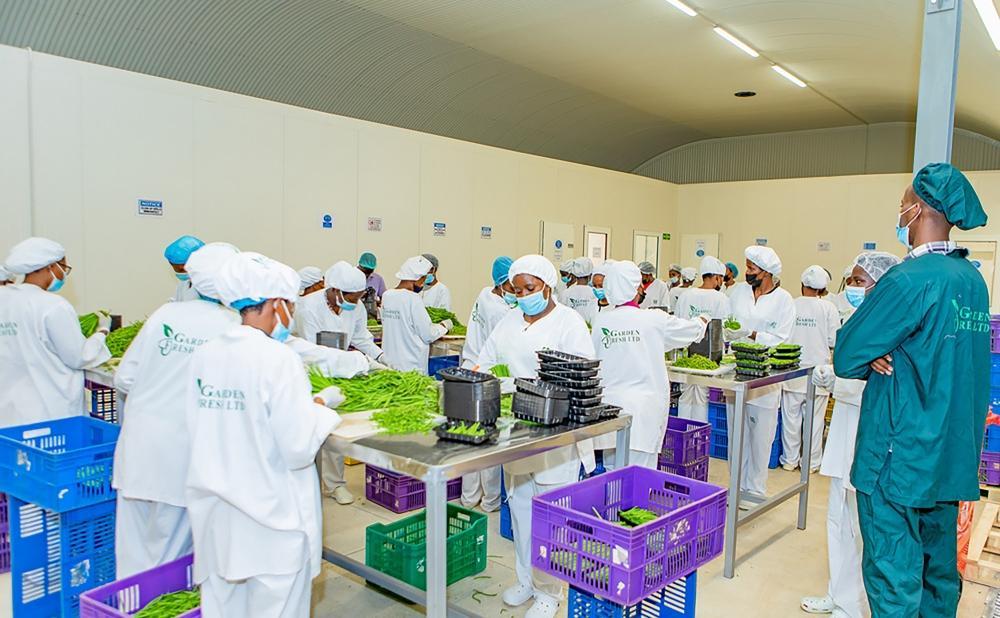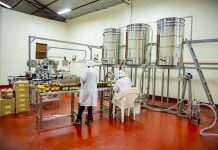Africa-Press – Rwanda. The Ministry of Trade and Industry has laid out a plan that will see the country prioritise key export commodities under the national African Continental Free Trade Area (AfCFTA) implementation strategy.
Under the AfCFTA, a trade agreement which seeks to create a single continental market for goods and services, Rwanda particularly wants to promote products that are climate-friendly and are sustainable.
The country’s export-oriented sectors with environmental sustainability potential include tea, coffee, avocado, honey, and horticulture, among others.
According to Doreen Ntawebasa Hategekimana, Director General of Trade and Investment at the trade ministry, the AfCFTA implementation strategy seeks to deepen the country’s integration into regional and continental markets while enabling the private sector to seize new business and investment opportunities.
Doreen Ntawebasa Hategekimana, Director General of Trade and Investment at the Ministry of Trade and Industry.
“The AfCFTA implementation strategy prioritises sectors and commodities where Rwanda holds comparative and competitive advantages, as well as those with strong potential for regional value chain integration,” she noted.
Priority commodities
To achieve this, the ministry says it has developed a ‘Green Supplement,’ a supplementary strategy that will enable the government to identify, develop, and promote green value chains – those for products and services that are climate-friendly, sustainable, and aligned with low-carbon growth.
The green value chains that will be prioritised include agro-processing, manufacturing of light or higher-value goods such as textiles and leather products, as well as service exports, especially in digital trade, professional services, ICT, and logistics.
“The prioritised sectors include agro-processing (tea, coffee, and other crops), mining and mineral processing (tin, tantalum/coltan, tungsten, and other base metals), and construction materials (cement, lime, fabricated materials, and related products for the regional market),” she explained.
Other focus areas are textiles and apparel, leather and hides (processing raw skins into finished products), and processed metals and fuels (including refined petroleum and metallic products for re-export).
Air cargo and logistics services are also prioritised to position the country as a regional hub and boost intra-African trade.
Robert Rukundo, Chairperson of the Horticulture Exporters Association of Rwanda, said the horticulture sector is ready to tap into the green export market, as farmers are already adopting eco-friendly practices.
“Our sector is largely environmentally friendly. Horticultural products like avocados and chilli are fresh and green,” he said.
“The main focus now is on sustainable fertilisers and chemicals to prevent environmental damage to soil and water. Avocado cultivation, for example, aligns with agroforestry practices, making it inherently eco-friendly,” he added.
Cross-border trade opportunities
Rukundo noted that opportunities exist for Rwandan exporters, especially within Africa, where intra-regional trade remains low, around 15–17 per cent.
However, he indicated that there were infrastructure challenges and non-tariff barriers that need to be addressed to enable exporters to unlock opportunities presented by cross-border trade.
“Investments in storage, logistics, contract management, and quality assurance are crucial. Tax incentives, value addition policies, and access to exemptions should also be available to local investors, not just foreign ones,” he noted.
According to Pierre Claver Nsanzumuhire, a coffee wine producer, the government should help small and medium-sized enterprises obtain quality certification more easily and quickly to enable them to access intra-regional trade.
“Instead of going through lengthy procedures, officials from quality control institutions could conduct inspections, for example, once every three months. Sometimes businesses fail to obtain certification on time, even when their products already meet quality standards,” he explained.
Nsanzumuhire highlighted that access to export permits should be facilitated so that products can reach African markets more easily. “Also, competition in product quality should not depend on the business owner’s financial capacity, but rather on the actual quality of the product.”
Farmers have also advocated for support towards implementation of new farming techniques, key to producing organic products whose demand tends to be high on international markets.
“Rwanda has, for instance, secured an avocado market in the Middle East, where a 4kg box of avocados sells for $10. We need sufficient eco-friendly avocado production to meet the growing demand for green products, but this requires heavy investment,” said Pacifique Nshimiyimana, a representative of the avocado farmers’ association.
To enable farmers tap into the wider African market under the AfCFTA, the government has been working to facilitate cross-border traders through different initiatives including a One-Stop Centre for trade facilitation.
A National AfCFTA Implementation Committee (NIC) has also been established.
Rwanda’s National AfCFTA Implementation Strategy highlights the importance of the committee in coordinating the agreement’s provisions.
Successful implementation holds the potential to unlock significant economic benefits for Rwanda.
For More News And Analysis About Rwanda Follow Africa-Press






